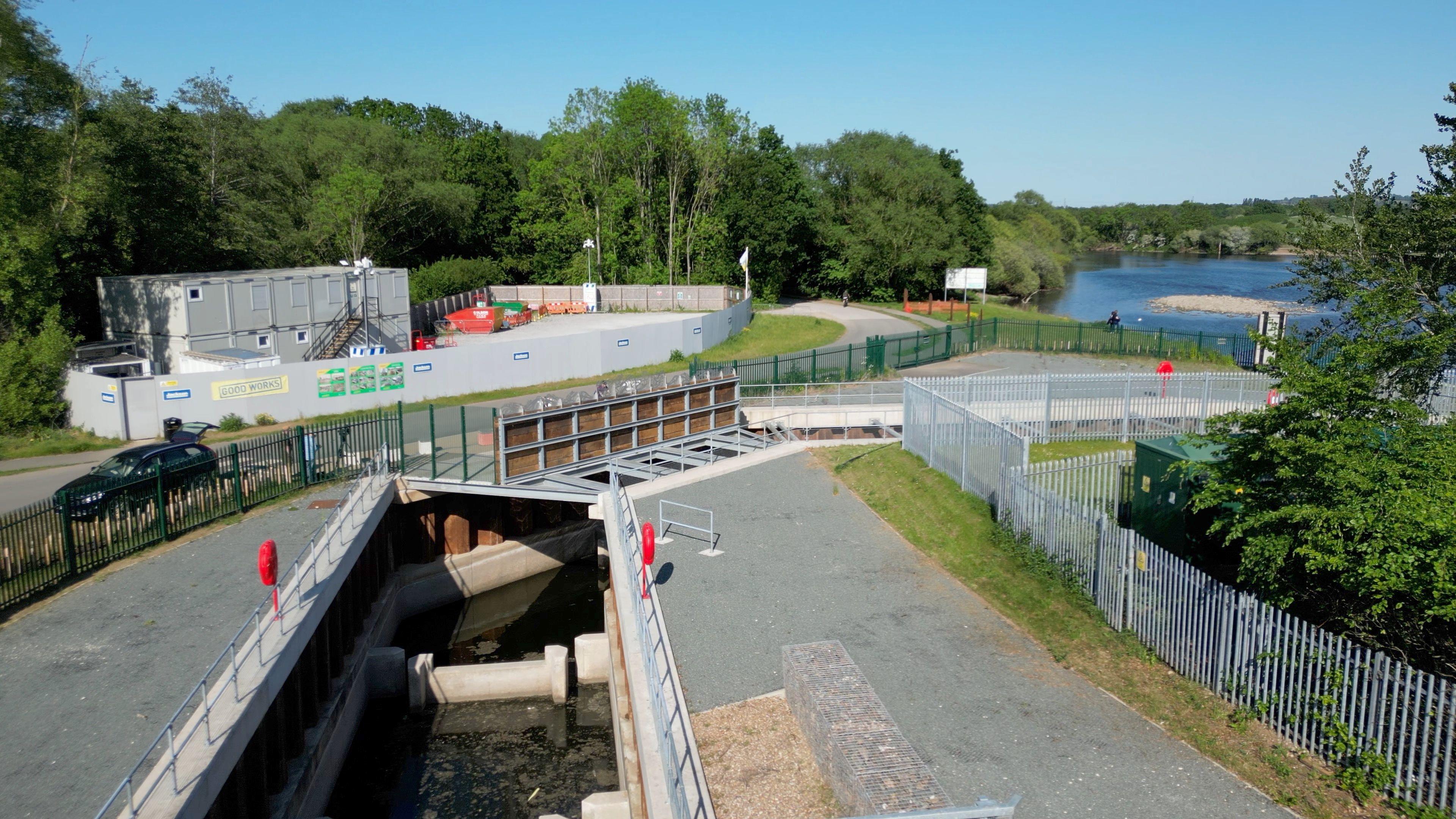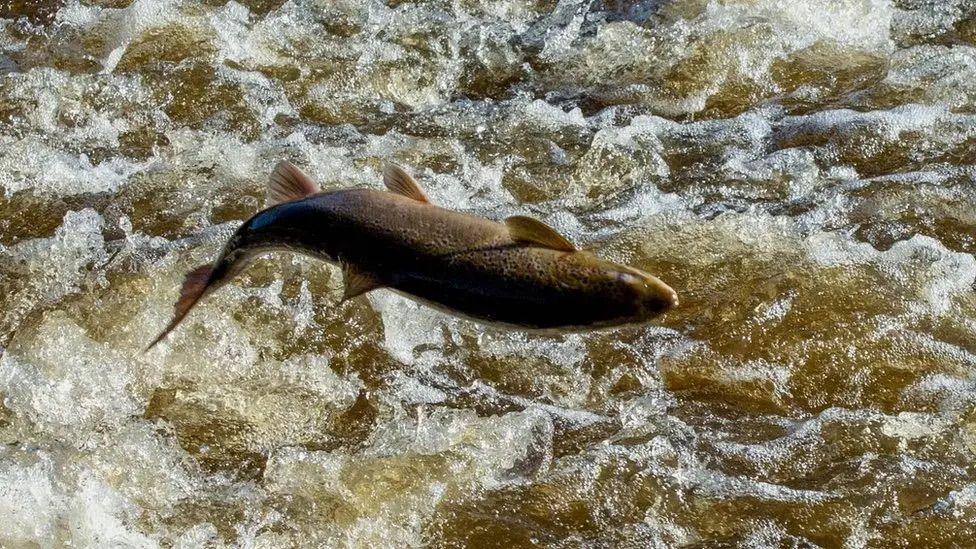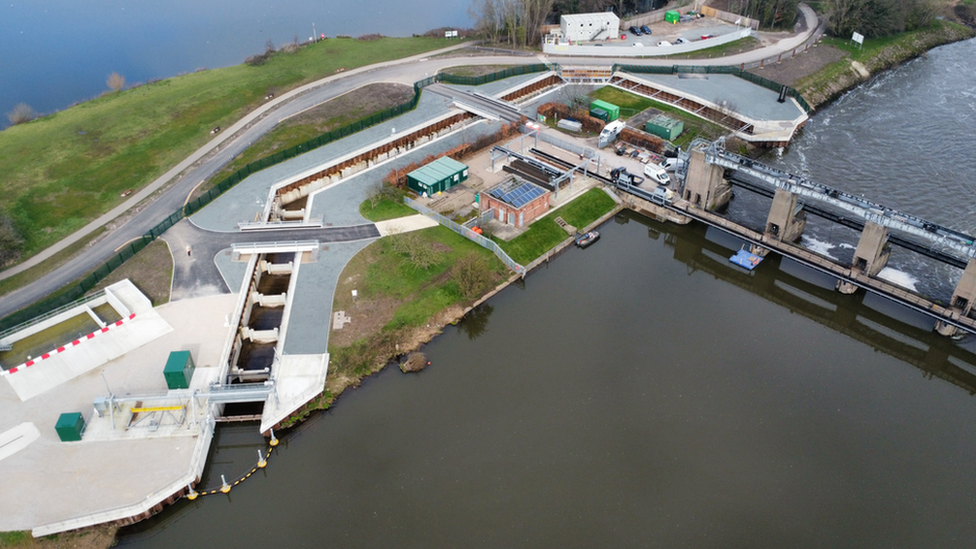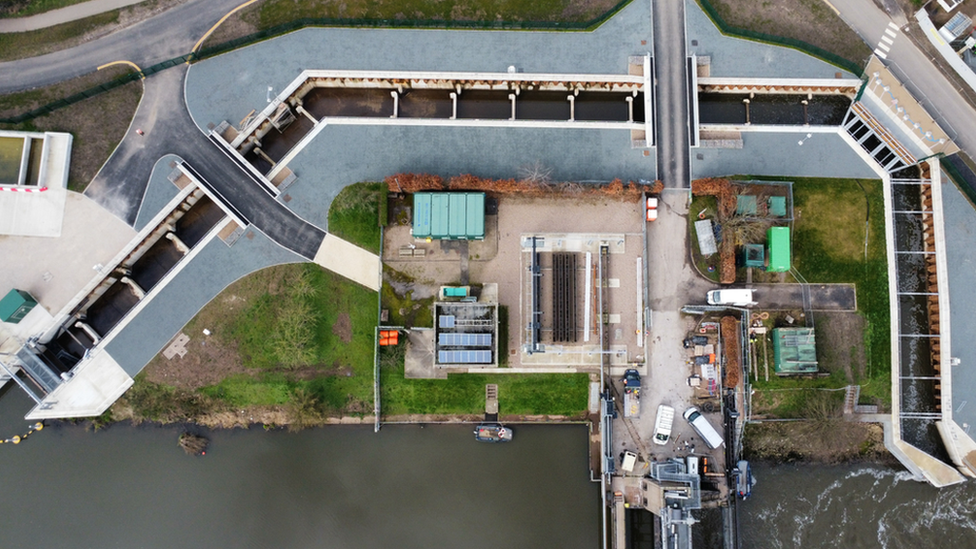Call for greater monitoring of £12m fish pass

The fish pass goes around a flood defence structure across the River Trent
- Published
A charity is calling for greater monitoring of England's largest fish pass, which cost £12m.
Once described as a "motorway for fish", it was installed at Colwick Country Park in Nottinghamshire by the Environment Agency (EA) and opened in November 2024.
The aim was to "make it easier for salmon and other fish to reach their spawning and feeding grounds" along the River Trent, boosting declining numbers.
The EA has no legal obligation to monitor the effectiveness of the structure and will carry out short-term checks during key migratory windows, but the Trent Rivers Trust fears it is not enough.
'Canary in the coal mine'
Wild Atlantic salmon were once native to the River Trent and are the main species the fish pass was designed to help recover.
Numbers fell rapidly during the industrial revolution when weirs and dams prevented them from reaching breeding grounds and water pollution destroyed their habitats.
"They've been referred to as the canary in the coal mine," said Alison Baker, restoration director at the Wild Atlantic Salmon Trust.
"Salmon require cold, clean water and if there's no cold clean water, then we all suffer."
The fish pass is built around Holme Sluices, part of a 1950s flood defence scheme owned by the EA on the notoriously unpredictable river.
The structure is 210m (656ft) long, 6m (19.7ft) deep and 6.5m (21.3ft) wide.
It is divided into 20 ascending chambers - each slightly higher than the previous ones to match the slope of the landscape - into which water flows through narrow slots.

Salmon lay eggs in freshwater rivers
The EA said the pass - built under the Salmon and Freshwater Fisheries Act 1975 - was "carefully designed and is relevant for all fish species, including salmon".
It is yet to carry out any monitoring and plans to perform short-term checks using underwater cameras to "better understand fish migration" in autumn of this year and spring 2026.
But Dr Scott McKenzie, head of rivers and nature-based solutions at the Trent Rivers Trust, said it was not enough to know how efficient the fish pass is or to learn from it.
"We don't just want a snapshot into whether they can get through at certain times of year," he added.
"A fish pass like this costs a lot of money; we want to make sure it's worth it."
Dr McKenzie said monitoring should involve counting salmon at key breeding sites to check they were "not only navigating the structure, but actually reaching their breeding habitats", and include other recovering species.

Dr Scott McKenzie said the fish pass should be "part of a bigger recovery plan"
The Trent Rivers Trust is leading a recovery of a 75km stretch of the river - a project that could see further fish passes installed.
Dr McKenzie said the facility at Colwick was "only worth it if it's part of a bigger recovery plan which should include monitoring".
The EA said: "For salmon monitoring, funding is concentrated on those rivers designated as 'principal salmon rivers', which the River Trent is not.
"Therefore, a strategy of monitoring at key migration windows is being applied here.
"Should further funding become available, the monitoring will be enhanced."
Get in touch
Tell us which stories we should cover in Nottingham
Follow BBC Nottingham on Facebook, external, on X, external, or on Instagram, external. Send your story ideas to eastmidsnews@bbc.co.uk, external or via WhatsApp, external on 0808 100 2210.
Related topics
- Published12 November 2024

- Published26 March 2024
